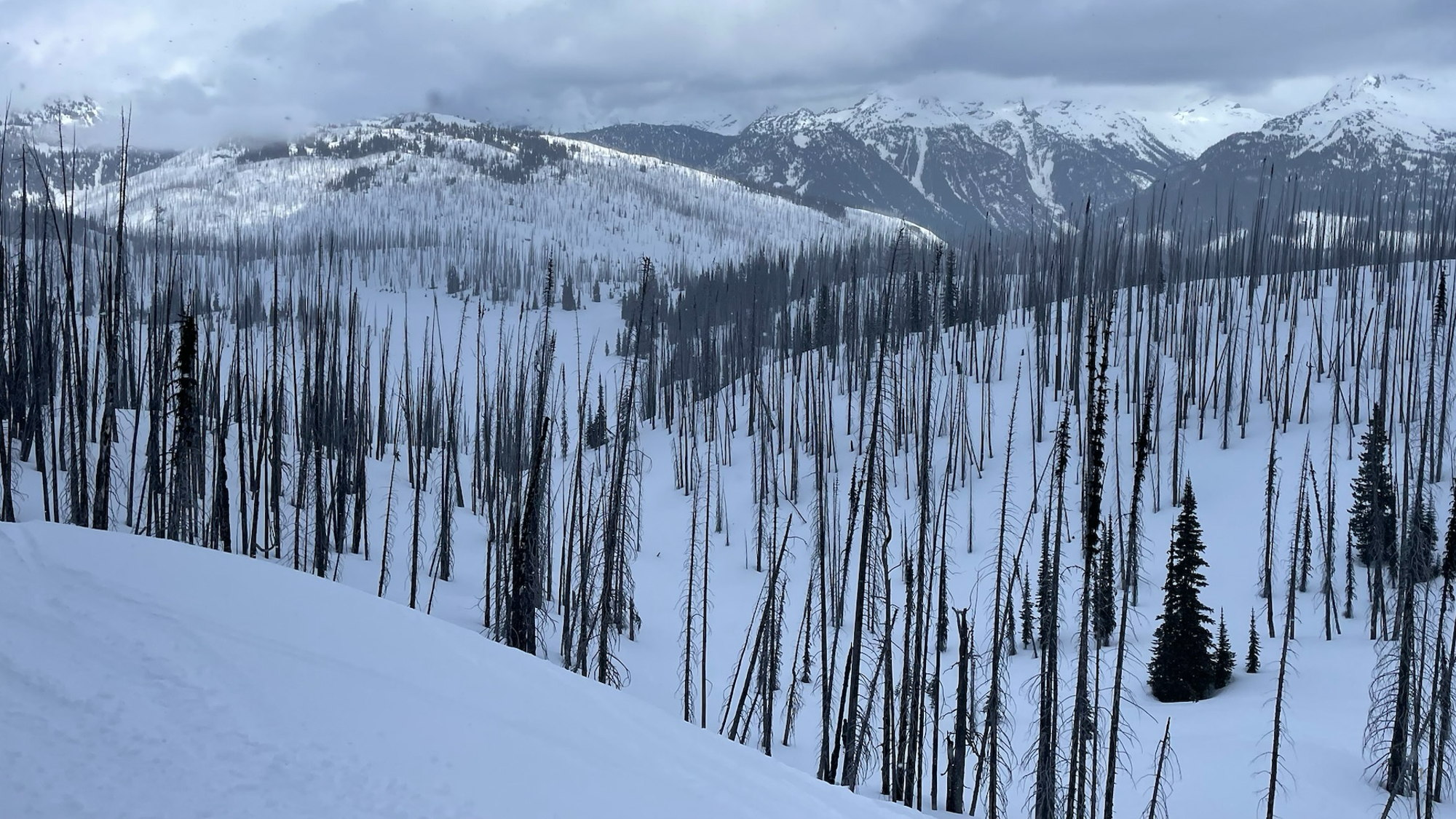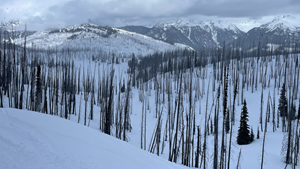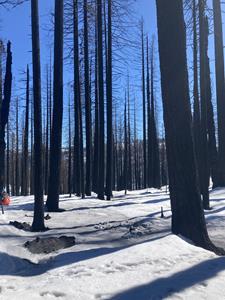Snow melts earlier in burned forests, new Science Advances study finds
Study led by Colorado School of Mines researchers raises concerns about water supply risks
GOLDEN, Colo., Sept. 17, 2025 (GLOBE NEWSWIRE) -- Wildfires are causing earlier snowmelt across the western U.S., and this effect would only be exacerbated by projected warmer winters. This is according to a new study led by Colorado School of Mines researchers published today in the journal Science Advances.
The paper, “Impact of current and warmer climate conditions on snow cover loss in burned forests,” was authored by Arielle Koshkin, doctoral candidate in hydrologic science and engineering; Adrienne Marshall, assistant professor of geology and geological engineering; and Karl Rittger with the Institute for Arctic and Alpine Research at the University of Colorado Boulder.
"When snow falls in burned forests, the snow melts earlier—especially as the climate gets warmer,” said Koshkin. “This means we get less water from those forests throughout the year. That’s a big deal because people in the western U.S. rely on snowmelt runoff for their water.”
The earlier snow melt in burned forests is a result of two processes, Koshkin said. The darker snow left by forest fires is less reflective, causing the snow to absorb more energy and melt earlier. Secondly, burned forests often have less tree cover, so there is more sunlight reaching the snowpack.
Lower elevation regions like the Pacific Northwest and Northern Sierra Nevada will be especially impacted. “These changes could make it harder for communities there to manage their water supply,” Koshkin said.
The study relied on remotely sensed snow data gathered by NASA’s Moderate Resolution Imaging Spectroradiometer (MODIS) satellite. Most previous studies on the topic utilized ground-based measurement systems.
“Using satellite data allowed us to look at the whole western U.S. under one study rather than just a point-scale analysis in one forest,” said Koshkin. “This larger spatial scale allowed for comparison and understanding of how different regions react differently to wildfire impacts on snow.”
According to the study, 98 percent of forested regions in the western U.S. could expect earlier snowmelt after a fire occurs. The situation gets worse as average temperatures increase – with 2°C of additional warming, the type of warming predicted to accompany climate change, 86 percent of the snow zone would experience earlier post-fire snowmelt compared to historically average conditions, according to the study.
About Mines
Colorado School of Mines is a public R1 research university focused on applied science and engineering, producing the talent, knowledge and innovations to serve industry and benefit society – all to create a more prosperous future.

![koshkin4[51]](https://ml.globenewswire.com/Resource/Download/b0122e97-916c-4525-8a28-7674de147571/koshkin4-51-.jpeg)
Photos accompanying this announcement are available at:
https://www.globenewswire.com/NewsRoom/AttachmentNg/b2da82c3-1824-4b16-9e04-18c6f899a822
https://www.globenewswire.com/NewsRoom/AttachmentNg/b0122e97-916c-4525-8a28-7674de147571

MEDIA CONTACT: Erich Kirshner, Mines Media Relations 303.921.6733/erich.kirshner@mines.edu
Large Burn Scar in the Northern Rocky Mountains
A study conducted at Colorado School of Mines considered how snow melts in previously burned forests. The study found that for a variety of reasons, the snow melts faster in these environments. The results point to a significant impact on water supplies.
Burned forest in the Sierra Nevada, California one year after the fire.
A snow melt study published in Science Advances finds snow melts faster in previously burned forests. The authors note that lower elevation regions like the Pacific Northwest and Northern Sierra Nevada are especially impacted.
Legal Disclaimer:
EIN Presswire provides this news content "as is" without warranty of any kind. We do not accept any responsibility or liability for the accuracy, content, images, videos, licenses, completeness, legality, or reliability of the information contained in this article. If you have any complaints or copyright issues related to this article, kindly contact the author above.


